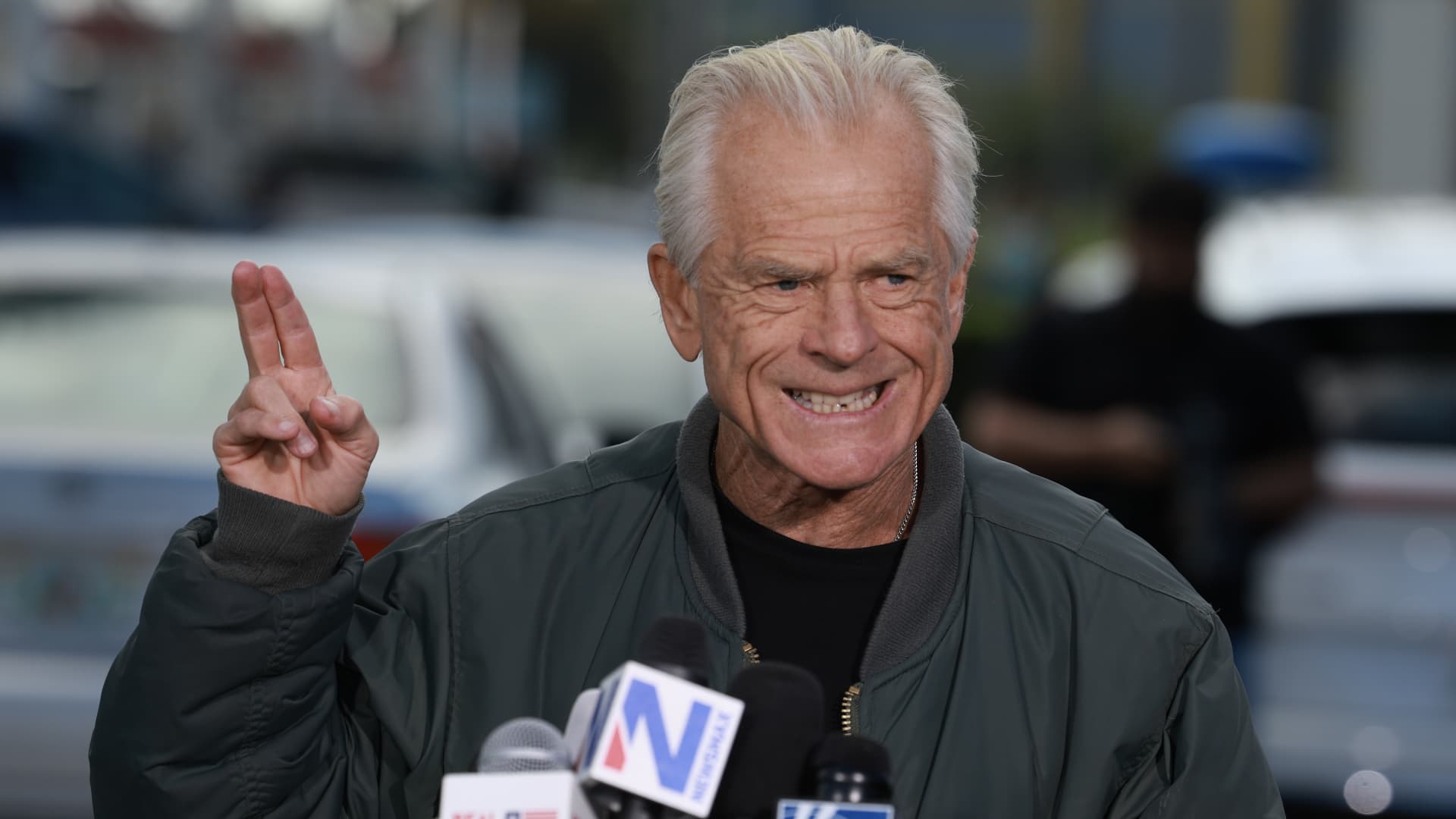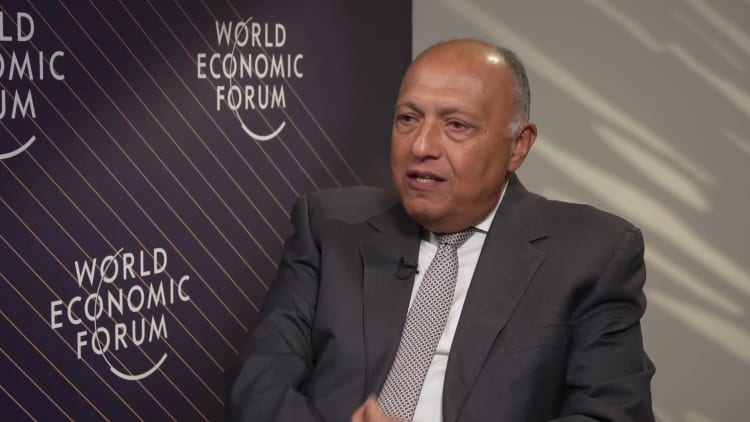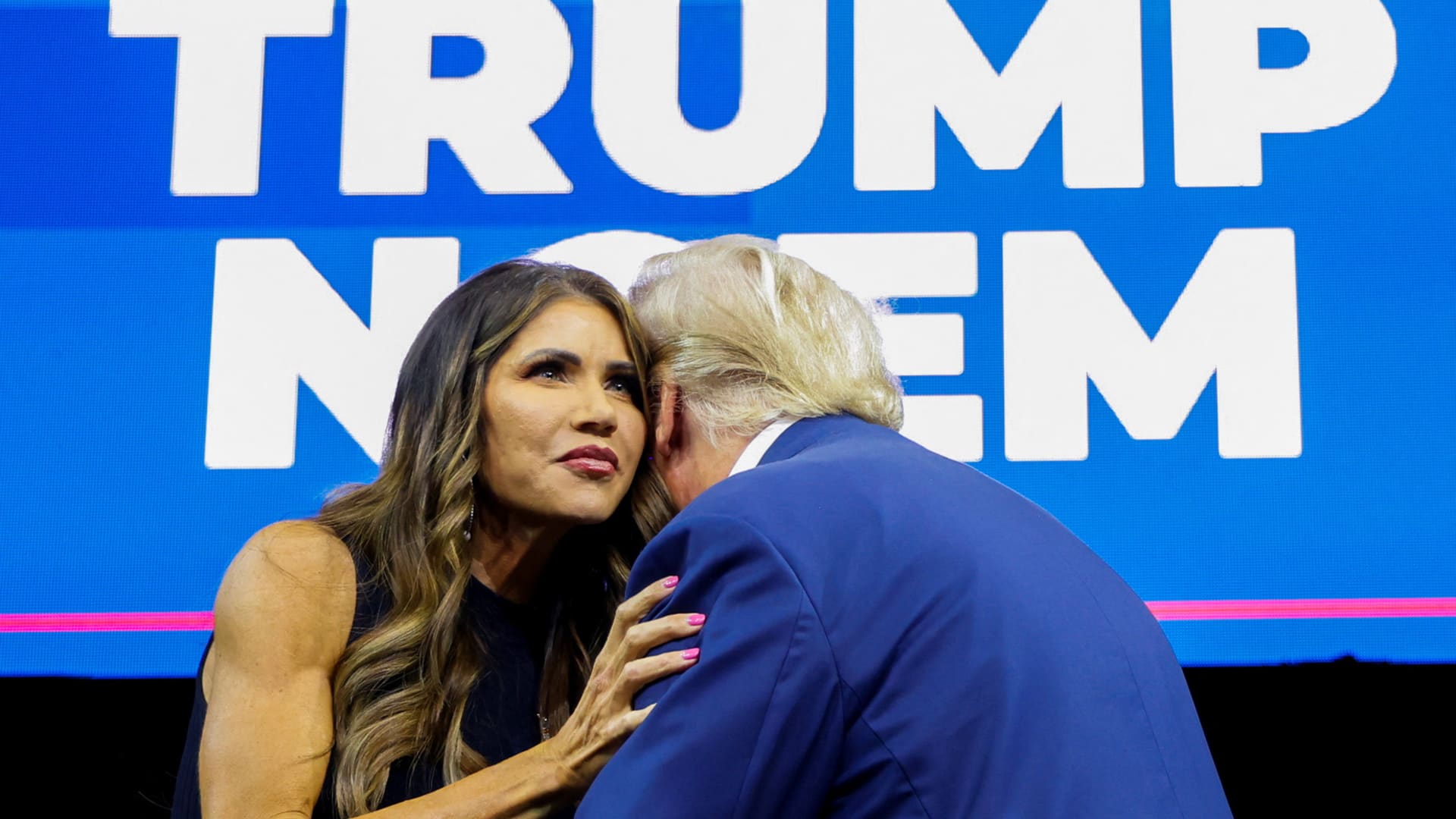A few hours before his State of the Union address last month, President Biden called the CEOs of General Motors and Cisco Systems to ask for their advice on the state of the American economy and to tell them how he planned to talk about it.
He then drove to Capitol Hill and promised in his speech to raise the rate of a new minimum tax his administration has imposed on big corporations “so that every big corporation finally starts paying its fair share.”
“I also want to end the tax breaks for Big Pharma, Big Oil, private jets and massive executive pay,” Mr. Biden continued, adding: “End it now.”
The sequence embodies Mr. Biden’s cozy yet combative relationship with America’s business leaders, which has impacted the national economy, federal policy and now the 2024 campaign for the White House.
The president has both courted and pilloried corporate America as he seeks re-election this fall. Business leaders enjoyed record profits and open communication with his government under his leadership, but they bristled at some of his key policy decisions.
Much of Mr. Biden’s economic agenda has some symbiosis with business leaders. His industrial policy initiatives rely heavily on corporate tax incentives, which he champions at ribbon-cuttings across the country: The climate and advanced manufacturing bills that Mr. Biden signed in 2022 provide big tax cuts for companies involved in the production of semiconductors and invest in solar modules and other strategic goods. Republicans have derisively referred to these incentives as “corporate welfare.”
Mr. Biden often seeks advice from business leaders on a variety of economic issues, including supply chain issues, infrastructure investments and worker training. He impressed Calvin Butler, the chief executive of utility giant Exelon, during a two-hour meeting with executives in the Oval Office last fall.
“He was involved in this, and I can tell you that,” Mr. Butler said in an interview. “Around the hour, they kept tapping him and saying, ‘Hey, you know, we have other things to do.’ But he wanted to continue. He wanted to keep talking.”
But in his quest for re-election, Mr. Biden has leaned heavily into populist attacks on the executives and companies he has hired. He likes to talk about increasing corporate taxes. He has also moved to blame big companies, sometimes by name, for raising prices on some consumer staples. He blasts others for shrinking portions of snacks like candy bars without lowering their prices.
Mr. Biden has also brought to office an economic philosophy that relies heavily on federal government intervention in private markets. This includes investments in infrastructure and industries that business leaders generally support.
But it also includes environmental, financial and other regulations intended to reduce risks in the market. Companies oppose these efforts, as well as aggressive antitrust enforcement and other government initiatives designed to boost competition.
As a result, Mr. Biden’s relationship with corporate America is “complicated,” said Neil Bradley, executive vice president and chief policy officer of the U.S. Chamber of Commerce, a major business lobbying group in Washington.
Mr. Biden and his economic team have been open and thorough in reaching out to business groups, Mr. Bradley said, but have been frustrating in their policy decisions. Chamber officials estimate that under Mr. Biden, federal agencies have issued about twice as many regulations deemed “economically significant” — currently defined as those with an annual impact of at least $200 million on the economy — than under President Donald J .Trump.
It stands in contrast to Mr. Trump, whose administration conducted less consistent public relations and wobbled chaotically from crisis to crisis. Mr. Bradley said executives weren’t sure which combination they preferred.
“You can imagine a Trump administration with much more uncertainty, but the regulatory efforts were aimed at reducing regulatory costs,” he said. “Here in the Biden administration, we have a pretty good idea of where they’re going to go – how devastating is it going to be in terms of the level of regulation? And interestingly, a lot of people say, ‘Chaos is better.'”
Mr. Biden speaks regularly with executives of large corporations and small businesses and has visited dozens of companies during his time in office. Executives who have spoken to the president and his staff say they are listening carefully to companies’ concerns, even as Mr. Biden and his team make it clear they disagree on the current policy issue.
Exelon’s Mr. Butler said he had urged Mr. Biden at the White House to act more quickly to address permitting issues and other hurdles to expanding new energy infrastructure. Mark Cuban, the famed investor and founder of Cost Plus Drugs, said in an email that his conversations with Mr. Biden focused primarily on health care, including what he called the “great work” the president has done to get Medicare to negotiate lower prescription drug prices.
Brad Smith, Microsoft’s chief executive, said in an interview that he had spoken with Mr. Biden about implementing his infrastructure bill and the CHIPS and Science Act, as well as regulating artificial intelligence. He praised Mr. Biden’s efforts to strengthen cybersecurity, saying he had done more on the issue “in his presidency than any other president ever.”
Mr. Biden’s staff, Mr. Smith added, “has a breadth of expertise that is applied at a deep level.” Under Mr. Trump, “the staff has become leaner,” he said. “There weren’t that many in many key jobs.”
Other leaders have criticized Mr. Biden’s policies in whole or in part. Oil and gas executives have denounced a government pause on approving new natural gas export terminals. Jamie Dimon, chief executive of JPMorgan Chase, called Mr. Biden’s climate law and other green energy initiatives “inflationary” in an interview with CNBC this year.
Ken Griffin, founder of the financial firm Citadel and a major Republican donor, was harsh about Biden’s economic policies in a Bloomberg interview in November. “Whoever told him to run for Binomics has no idea how to read an economics textbook,” Griffin said.
Biden’s outreach to executives is similar to the approach taken by President Barack Obama and his team, say business leaders and administration officials who also served under Mr. Obama.
But Mr. Biden differs from Mr. Obama — and Mr. Trump — in several ways. Executives who have spoken with him say the president makes it clear in conversations that he is a “blue-collar worker” who measures economic success in part by creating good-paying union jobs. He has embraced strict federal oversight of mergers and other antitrust issues to a degree that even Mr. Obama has not.
It also has deeper political connections to corporate behavior. Mr. Biden’s climate agenda combines corporate tax breaks for domestic production with a series of tough regulations aimed at quickly reducing fossil fuel emissions. In some cases, authorities under Mr. Biden have weakened some regulatory proposals in their final form — expressly, administration officials say, to address businesses’ concerns.
Lael Brainard, who leads the White House National Economic Council, said in an interview that the president’s targeted tax breaks for corporations were a departure from a Republican philosophy that called for “blanket tax breaks for corporations regardless of whether they made investments.” This is good for America, creates jobs and helps transition to clean energy.”
Democratic pollsters are encouraging Mr. Biden to amplify that message in his re-election campaign. They want him to highlight his plans to raise taxes on big corporations, while urging companies to raise prices to pad profits and hit customers with “junk fees” for things like concert tickets. Their data suggests that corporate taxation is a major vulnerability this fall for Mr. Trump, who has cut corporate tax rates during his time in office and will face Mr. Biden in a rematch in 2020.
Voters “want to feel like the president is on their side, against the people they feel are pressuring them,” said Evan Roth Smith, lead pollster for the Democratic group Blueprint. “Voters have no understanding of big business right now,” he added.
Mr. Bradley of the U.S. Chamber of Commerce said many executives bristled at that language and particularly at Mr. Biden’s practice of calling out companies by name for raising prices or reducing portions. But some executives dismiss or downplay Mr. Biden’s tax proposals — and repeated calls for companies to pay their “fair share” — as campaign bluster.
“Given the way D.C. works and the fact that we’re in a political season, I tend to not go too high or too low on any of this,” Butler said.
Microsoft’s Mr. Smith said it was an area of disagreement in an otherwise positive relationship with the president.
“We won’t be the first company to join tax increases,” he said. However, he later added: “I think our tax rate is high enough that our first reaction is usually him talking about someone else.”
Source link
2024-04-03 09:04:03
www.nytimes.com







